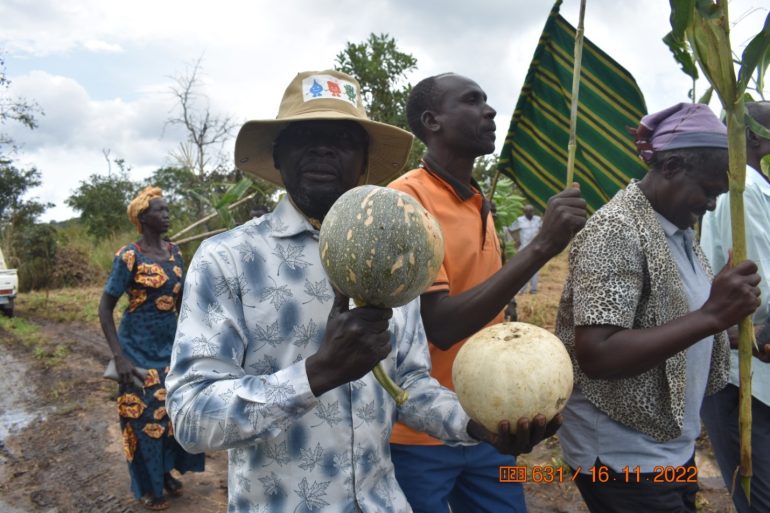Several returnees in Magwi County of Eastern Equatoria State are reaping fruits of hard work from agriculture.
With support from the United Nations Higher Commissioner for Refugees (UNHCR), returnees have been able to establish commercial farm in Magwi to rebuild their lives.
Odong Anthony Okech, Chairperson for Can Coya Farm, a community-led multipurpose cooperative ltd said the farmland was established in July last year.
“The group was formed last year in July, it initially comprised 30 members, but later on we were joined by more members and the number increase to 54 comprising of returnees and the host community,” Okech told The Juba Echo on Wednesday during a visit to the farm.
Okech said they are growing vegetables, fruits and maize on the farm.
He said they supply Magwi and Torit with fresh vegetables and maize.
“We supplied Magwi and Torit with vegetables last year, and this year we have started supplying Magwi and Torit with maize,” added Okech.
“When we sale the produce, we used some money to open the land and we divide some of the money among the members which they use to support their children in education and hospital,” said Okech.
Eastern Equatoria has the highest number of returnees, according to UNHCR.
112,432 out of more than 60,000 returnees who have returned to the country since 2018 are based in Eastern Equatoria State.
Raouf Mazou, UNHCR Assistant High Commissioner for Operation, said they are working closely with the government to improve the livelihood of returnees.
“This is a fantastic example of the kind of support that can be provided to people who are coming back, as you know there are more than 2 million South Sudanese refugees in the region,” said Mazou.
Mazou said that they will continue to support returnees in improving their living standards.
“About 600,000 have come back in the past few years, more would like to come back but they need livelihood, access to services but livelihood is absolutely essential and crucial,” he added.
Dr. Manase Lomole Waya, Chairperson for Relief and Rehabilitation Commission (RRC) stressed the need to support returnees to boost food production and supply.
“Magwi is the main source of food to various parts of our country, and particularly to Juba and they need to be supported,” said Lomole.
“As people return voluntarily, there is a need to prepare for them the basic services for example the children to get schools so that they are not left behind,” he added.
Lomole urged partners to empower young people with skills in order for them to take lead in agriculture.
“We can’t do well without having primary school programs and secondary school programs and other forms of education, including skills training programs so that young people can actively engage in productive activities,” he said.













